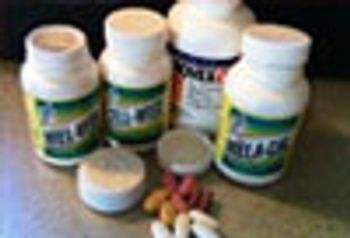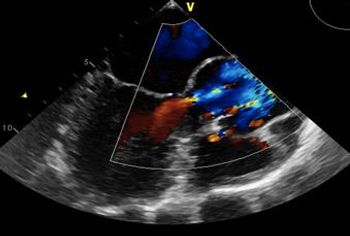
The ankle-brachial index is a noninvasive screening tool that can improve cardiovascular event risk stratification.

The ankle-brachial index is a noninvasive screening tool that can improve cardiovascular event risk stratification.

Patients who stop taking statins when rechallenged 1 year later are able to resume the same or a different statin with durable results.

Interruption of anticoagulation with rivaroxaban or warfarin should be bridged with an agent such as low-molecular weight heparin.

Could the left atrial appendage closure device, known as the Watchman, become an alternative to oral anticoagulation for select patients? Here, more on the 2 trials that have introduced the possibility.

Female CV mortality lags behind male mortality; lifetime risk assessment, not 10-year risk, is a better estimation tool for women

Cardiovascular diseases here are patent foramen ovale, interatrial septal aneurysm, myocarditis, aoritis, internal carotid artery dissection, heart-hand syndrome.

Diabetic myonecrosis; Persistent bacterial bronchitis; basal cell carcinoma; statin-drug pleiotropy; spinal epidural abscess

High-potency statin therapy may increase risk of new onset diabetes but also reduces cardiovascular events.

Patients who consumed a Mediterranean-style diet had a 30% reduction in major cardiovascular events compared with patients who ate a diet low in saturated fat.

Elevated levels of the biomarker C-reactive protein in patients with HIV infection increased the risk of MI approximately 2-fold.

This condition is a more important risk factor than previously thought and should not be taken lightly.

Dipeptidyl peptidase-4 inhibitors, of the incretin class of antidiabetes drugs, are weight neutral, avoid hypoglycemia, and result in an average reduction in HbA1c of 0.5% to 1.0%

Some calcium is good for the heart, but too much--through diet or a combination of diet and supplements--can increase the risk of death from cardiovascular disease, according to a new study.

Goals for HbA1C, blood pressure, and LDL-C among diabetes patients are being met by more, according to the NIH.

Patients with documented atrial fibrillation given intensive yoga instruction had a reduction in symptomatic and asymptomatic AF episodes.

It has been predicted that costs for cardiovascular disease will increase to more than $1 trillion dollars annually in the US by 2030. If statins are effective in preventing heart disease, why are costs still rising?

The explosion of data regarding residual risk and contributions from LDL-P predicts an exciting future. Right now, treatment regimens are in flux awaiting further details on LDL-P interventions and a host of new drugs.

A fourth dipetidyl peptidase-4 inhibitor is approved as monotherapy and in combinations with metformin and pioglitazone.

The follow-up risk of death or an ischemic cardiovascular event that requires hospitalization is about 10-fold higher than the risk of hospitalization for major bleeding.

The safety profile correlates with lower observed risk of stent thrombosis, according to an analysis of insights from a nationwide coronary intervention registry.

Dark chocolate, tomatoes, and grapeseed oil are just a few of the natural approaches to cardiovascular risk reduction supported by science.

PFO can be detected in 10% to 15% of the population by transthoracic echocardiogram. Autopsy studies show a prevalence of PFO of approximately 26%.

Here: a battle plan to address obesity-the root problem of our current epidemic of metabolic syndrome, hypertension, and diabetes mellitus-that involves kicking a sedentary lifestyle.

The benefits of antihypertensives in the elderly should be unquestioned-especially since SHEP and its revisit. Avoiding them will create more problems. But caution can be exercised with these specific measures.

Newly diagnosed hypertension in a patient whose blood pressure is 152/94 mm Hg. What agents will you consider for this patient? Beta-blockers? Think again.